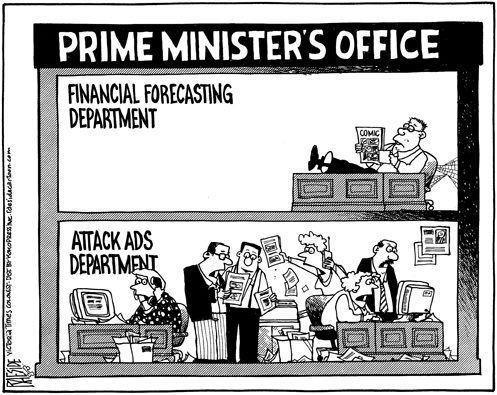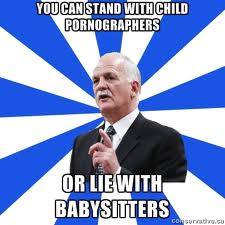
Contrary to what governments want their citizens to do, that is precisely what the following Star letter-writers are engaging in as they ask the right questions and point out what should be obvious about the war on ISIS terrorism:
Chantal Hébert overlooked the sanest voice in Parliament when she analyzed the stands of the three main parties on the war against Islamic State. She accused Stephen Harper, Thomas Mulcair and Justin Trudeau of electioneering rather than clear thinking. Too bad she didn’t mention Elizabeth May’s brilliant speech on the issue. While agreeing with Harper that Canadians support the need to address the evils of terrorism, she reminds us that recent history has shown that wars have only made matters worse; that we need to sign the arms trade treaty in order to keep the weapons out of the hands of terrorists; and we need to figure out what leads these young men to such acts of extremism. She also points out that a decision about going to war needs much more than a single day of debate in the House of Commons.
Katy Austin, Elmvale
The Conservatives’ fundamental argument to justify the use of CF-18 war planes against the Islamic State in Iraq is a moral argument. Their claim is that Canada will demonstrate and build national character through air attacks against the militants. They argue we have a duty to ourselves above all others to strike Islamic State since our action will be morally right.
But is national character really the main test to use when making a decision about bombing Iraq? Is it not better to test the decision against strategic security questions such as: Is it really our fight and not the fight of regional powers? Why did previous massive military interventions in Iraq and other places fail to end the threat? Why expect a different outcome this time? Why aren’t the militaries of Saudi Arabia or Egypt deployed instead since both these regional states are amply supplied with American war planes by the U.S.?
Brad Butler, Etobicoke
In view of the beheading of innocent American and British nationals and the many brutal atrocities committed by Islamic State, it is difficult to remain passive and uninvolved. There is a natural and visceral desire to punish or destroy — as an act of revenge or to teach them a lesson. So bombs away!
But is this the best and most logical reaction? The answer is clearly No!
History has many examples to show that bombing will not provide a beneficial long-term result. While bombing will slow or momentarily halt an Islamic State advance in Iraq, it will not provide a victory over that foe. Nor will it have a beneficial result in Syria. Well-trained and motivated boots-on-the-ground (primarily Iraqi and Kurdish boots) are needed to thwart the Islamic State’s advances in Iraq. Reaching out to moderate Sunnis is also needed. Syria is another complicated matter and a no-win situation.
Harper has committed our soldiers to this battle for three reasons: in order to satisfy a U.S. request, to appease his political base and to inflate his image as a decisive leader. None of those reasons is sufficient to get involved in a combat role with CF-18s and support personnel. Iraq has requested support with training, weapons and humanitarian assistance. That should have been Canada’s response.
Bombing will have a strategic impact for the Islamic State similar to the Sept. 11 attacks for the U.S. — namely to motivate, recruit and engage a sleeping element. Perhaps that was the underlying reason for the beheadings. If so, Islamic State has won this stage. Is this a sign of its future success?
Dennis Choptiany, Markham

.jpg)

.jpg)














